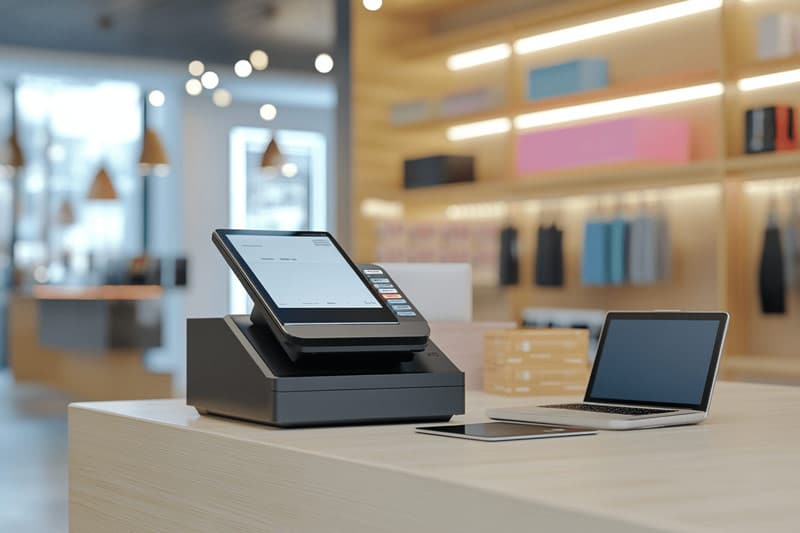For any business that accepts customer payments, choosing the right merchant services provider is a decision with lasting consequences. It influences how efficiently you process credit card transactions, how much you pay in fees, how securely you handle customer data, and whether your business can scale without running into processing limits or compliance issues.
As of 2025, the merchant services landscape is more complex—and competitive—than ever. With the rise of new payment technologies, evolving regulatory standards, and increasingly high customer expectations, the pressure is on for business owners to choose wisely. Whether you’re a startup seeking low transaction fees or a high-risk merchant needing customized fraud tools, this guide will walk you through what matters most.
What Is a Merchant Services Provider?
A merchant services provider is a financial technology company or institution that enables businesses to accept and process payments from customers. This typically includes credit card processing, debit transactions, ACH transfers, and even alternative methods like mobile wallets or buy now, pay later.
The provider connects your business to the broader payment ecosystem—including banks, card networks (like Visa and Mastercard), and payment gateways[1]. It also handles behind-the-scenes tasks such as transaction authorization, fraud screening, settlement, and chargeback management.
The right provider can help your business grow by offering reliable, secure, and cost-effective payment solutions. The wrong one, on the other hand, can slow down transactions, charge excessive fees, or even freeze your funds unexpectedly[2].
Key Features to Look For in 2025
1. Transparent Pricing and Low Fees
Modern providers should offer clear pricing models. While some still use tiered or flat-rate pricing, many now offer interchange-plus or custom models for businesses processing at higher volumes. Understand your average ticket size and transaction volume before comparing offers. Hidden fees—such as PCI non-compliance fines or batch processing charges—should always be flagged.
2. Advanced Fraud Protection
As fraud tactics evolve, look for providers that include tools like real-time fraud detection, CVV/AVS filters, and velocity controls. Some providers use AI and machine learning to flag suspicious patterns before transactions are approved. This is especially important if you're in a high-risk vertical.
3. Multi-Channel Support
Whether you run a retail store, an eCommerce site, or a mobile business, your provider should support in-person POS systems, virtual terminals, mobile apps, and online checkout solutions. The best providers offer seamless omnichannel reporting and customer profiles that unify online and offline purchases.
4. Fast and Flexible Funding
Standard settlements typically take 1–2 business days, but some providers offer same-day or next-day funding. This feature is crucial for small businesses managing tight cash flow or subscription platforms that need quick revenue reconciliation.
5. PCI Compliance and Security Tools
Your provider should help you remain PCI-DSS compliant by offering tokenization, encryption, and secure payment gateways. Data breaches can be devastating—choosing a security-forward processor is non-negotiable in 2025.
6: Integration with Business Tools
Modern merchant services providers should integrate easily with your existing tools—like accounting software (QuickBooks, Xero), CRM platforms, ecommerce carts (Shopify, WooCommerce), and inventory systems. This reduces manual data entry, improves reporting accuracy, and ensures smooth operations across departments. Bonus points if the provider offers open APIs, Zapier integrations, or native plugins that support your tech stack.
Common Pitfalls When Choosing a Provider
1. Ignoring Contract Terms
Long-term contracts with early termination fees are still surprisingly common. Look for providers with month-to-month options or contracts that offer flexibility if your business model changes.
2. Focusing Only on Rates
Low rates are attractive, but they shouldn’t be the only thing you consider. Poor customer service, outdated systems, or rigid rules around account reviews can cost you more in the long run than a few basis points on each transaction.
3. Choosing the Wrong Provider Type
Aggregators like Square or Stripe are great for new or low-risk businesses, but high-risk companies (CBD, firearms, adult services, MLM, etc.) need specialized merchant services providers that understand risk management and compliance nuances.
4: Overlooking Customer Support Quality
Many merchants don’t evaluate the responsiveness and knowledge of a provider’s support team until it’s too late. Payment disruptions, chargebacks, and technical glitches are inevitable—when they happen, you need fast, knowledgeable help. Prioritize providers that offer 24/7 live support, U.S.-based reps (if that matters to you), and a dedicated account manager for higher-volume businesses.
High-Risk Businesses: What to Know
If you operate in a high-risk industry, you’ll need to be more selective. Not every merchant services provider supports high-risk accounts, and those that do often impose stricter underwriting and monitoring processes[3].
Look for providers that:
-
Specialize in your industry (e.g., supplements, subscription billing, digital downloads)
-
Offer built-in chargeback mitigation tools
-
Provide custom contracts and flexible rolling reserves
-
Support international transactions and multi-currency settlement
How to Compare Providers Effectively
Working with a high-risk-friendly provider can mean faster approvals, fewer disruptions, and ongoing support as regulations change[4].
Use the following checklist when evaluating providers:
| Criteria | Why It Matters |
|---|---|
| Pricing Model | Ensures clarity and affordability long-term |
| Industry Support | Not all providers serve high-risk or niche markets |
| Customer Service | Quick support can prevent costly downtime |
| Technology Stack | Should support modern integrations (e.g., APIs, mobile wallets) |
| Settlement Speed | Impacts cash flow and operational agility |
| Security Features | Protects customer data and maintains compliance |
Ask each provider to walk you through a sample monthly statement based on your projected volume. If they hesitate, that’s a red flag.
Final Thoughts
Choosing the right merchant services provider is more than just comparing rates—it’s about aligning your business with a partner that will support your growth, reduce your risk, and adapt to your needs over time. The ideal provider combines flexibility, reliability, and transparency, along with tools to handle evolving payment technologies and industry-specific compliance[5].
If you’re unsure where to start, or if you’ve been turned down by other credit card processing providers, Payment Nerds can help. We specialize in finding customized payment solutions for all business types—especially those in high-risk categories—and we’ll make sure you don’t get stuck with outdated tech, sky-high fees, or unresponsive support.
Sources
- Visa. “Merchant Services Explained.” Accessed July 2025.
- Federal Trade Commission. “Understanding Merchant Agreements.” Accessed July 2025.
- Forbes. “The Future of Payments in 2025.” Accessed July 2025.
- Harvard Business Review. “Building Trust Through Transparent Payment Practices.” Accessed July 2025.
- PCI Security Standards Council. “Compliance Requirements for Merchants.” Accessed July 2025.











